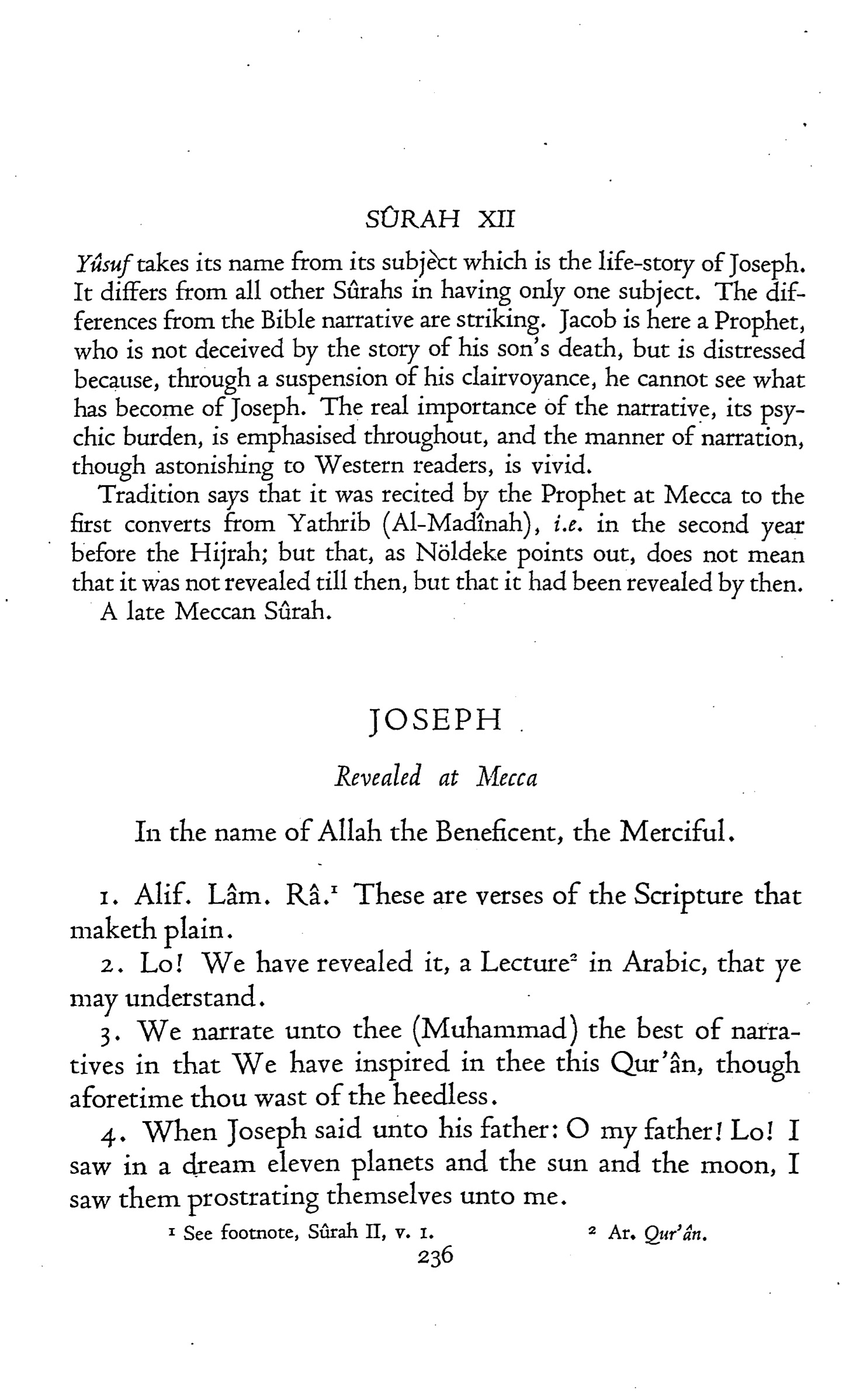Marmaduke Pickthall, The Meaning of The Glorious Koran. An Explanatory Translation (1930)
SÛRAH XII
Yûsuf takes its name from its subject which is the life-story of Joseph. It differs from all other Sûrahs in having only one subject. The differences from the Bible narrative are striking. Jacob is here a Prophet, who is not deceived by the story of his son’s death, but is distressed because, through a suspension of his clairvoyance, he cannot see what has become of Joseph. The real importance of the narrative, its psychic burden, is emphasised throughout, and the manner of narration, though astonishing to Western readers, is vivid.
Tradition says that it was recited by the Prophet at Mecca to the first converts from Yathrib (Al-Madînah), i.e. in the second year before the Hijrah; but that, as Noldeke points out, does not mean that it was not revealed till then, but that it had been revealed by then.
A late Meccan Sûrah.
Joseph
1. Alif. Lâm. Râ.1 These are verses of the Scripture that maketh plain.
2. Lo! We have revealed it, a Lecture 2 in Arabic, that ye may understand.
3. We narrate unto thee (Muhammad) the best of narratives in that We have inspired in thee this Qur’ân, though aforetime thou wast of the heedless.
4. When Joseph said unto his father: O my father! Lo! I saw in a dream eleven planets and the sun and the moon, I saw them prostrating themselves unto me.
1 See footnote, Sûrah II, v. 1.
2 Ar. Qur’ân.
